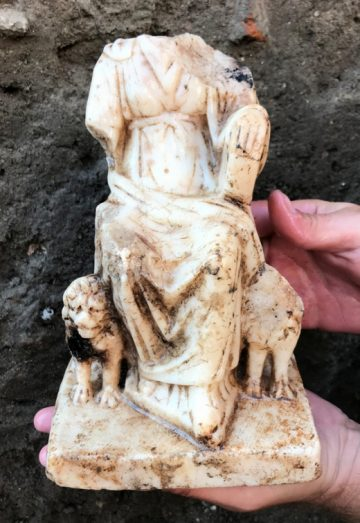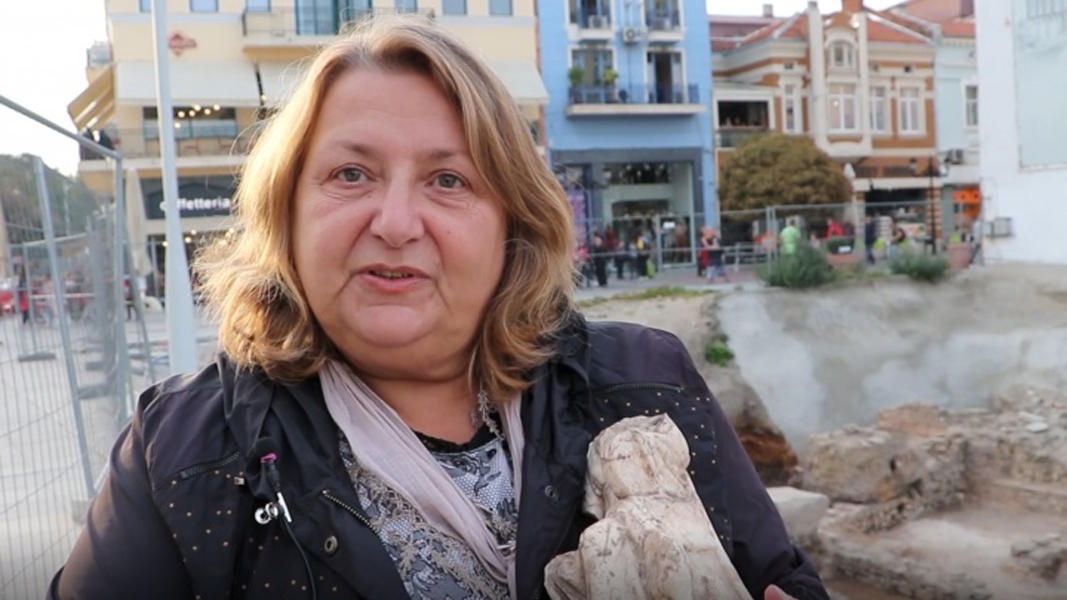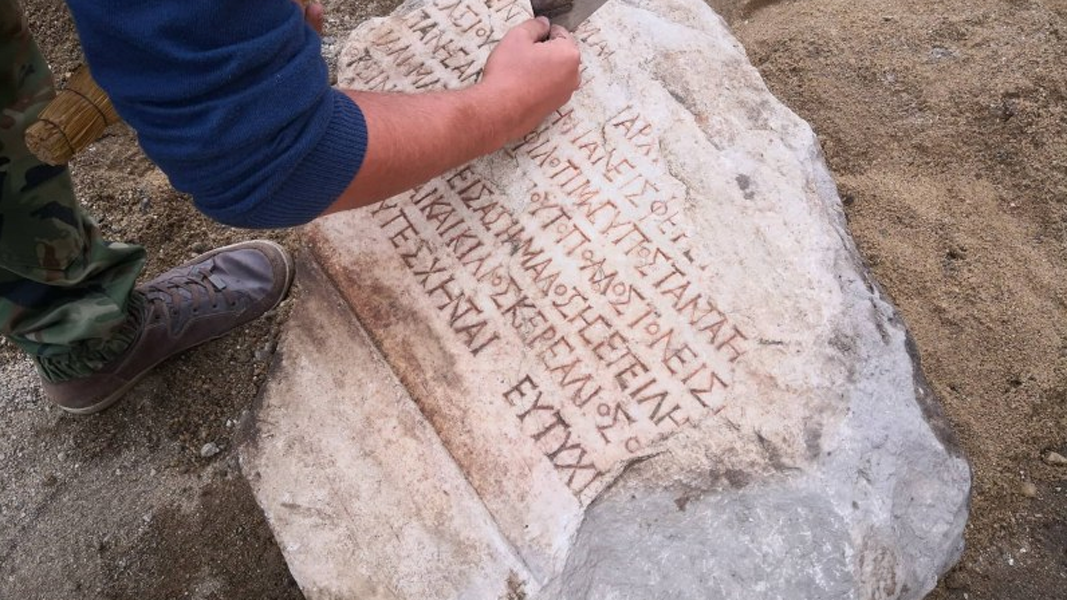 Another archaeological discovery has been recently made in the center of Plovdiv – a marble statuette of the goddess Cybele. The “North Forum” where the ancient statuette was found has been studied since 1986 and represents the heart of the ancient city. It is the largest antique square in Bulgaria and one of the largest in the Balkans. Its total area is over two thousand square meters and this year researchers have explored about 250 square meters of them. The northern part of the Agora – the city square of Philippopolis, as well as a complex of public buildings have been unearthed. There, in antiquity, the people of Philippopolis participated in political and religious events and merchants offered their goods.
Another archaeological discovery has been recently made in the center of Plovdiv – a marble statuette of the goddess Cybele. The “North Forum” where the ancient statuette was found has been studied since 1986 and represents the heart of the ancient city. It is the largest antique square in Bulgaria and one of the largest in the Balkans. Its total area is over two thousand square meters and this year researchers have explored about 250 square meters of them. The northern part of the Agora – the city square of Philippopolis, as well as a complex of public buildings have been unearthed. There, in antiquity, the people of Philippopolis participated in political and religious events and merchants offered their goods.
The Cybele statuette was discovered in a late antiquity layer from the beginning of the 4th century when Christianity was established as a religion in the Balkans and all pagan symbols were destroyed. According to head of the archaeological works Maya Martinova, that is why the statuette was burnt and broken:

"It is made of marble with traditional iconography. Cybele is seated on a throne surrounded by two lions, holding a drum in her left hand. The statuette is dated to the end of 2-3 century and the craftsman’s work is exquisite. Initially, Cybele was a Phrygian primal nature goddess. She was revered mainly in Asia Minor. Through the Greek colonies, the cult also penetrated our lands. In the Roman imperial era, the goddess was already revered as protector of the well-being of cities and the whole country. We associate this cult mainly with the Phrygian settlers in Philippopolis, whose presence is documented."
The Cybele statuette is not the only significant discovery that archeologists made in Plovdiv in 2019. An ancient Greek marble plaque has also been found. The inscription on it is part of an imperial letter that was displayed in the northern, most representative part of the city square of Philippopolis in order to make it accessible to all. Maya Martinova told us about its importance:

“This letter was written in response to a request on behalf of the city or union of Thracian cities. From the text it becomes clear that the letter is related to a specific case, checked by two envoys. The text is not complete and it is not very clear what the case was, but it does mention a fine that had to be paid. The end of the letter refers to a citizen, apparently of high social status, who was to pay the fine. The inscription is dated from the end of the second, the beginning of the 3rd century AD. Unfortunately, the name of the emperor has not been preserved, but according to Nikolai Sharankov, the plaque is linked to Emperor Septimius Severus, who imposed a fine on the city, because in the competition for the imperial throne, Philipopolis supported his opponent Pescennius Niger."
Archaeologists are currently exploring a layer from the Roman era. They have yet to document the four major stages in the construction of the Philippopolis agora, which are characterized by changes in the parameters of the open space and changes in the decoration. "For example, the earliest colonnade is characterized by Doric-style and made of yellowish tuff. Later Roman-Corinthian architectural designs were made of marble. We will be happy to find more monuments and inscriptions, because these are findings of great scientific value," Maya Martinova says in conclusion.
English: Alexander Markov
Photos and video: archaeologia-bulgarica.comOn November 30, the Bulgarian Orthodox Church honors the memory of St. Apostle Andrew . In Bulgaria the saint is known as Saint Andrey and the folk holiday as Andreevden . Saint Andrew’s Day gives the start to the series of winter holidays..
The head of the statue of Tyche, the goddess of Philippopolis, has been discovered in the Episcopal Basilica in Plovdiv, said the head of the excavations Lyubomir Merdzhanov. According to him, this is an extremely rare artefact that has been awaited..
105 years ago, on November 27, 1919, a treaty was signed in the Parisian suburb of Neuilly-sur-Seine, officially ending Bulgaria's participation in World War I (1914-1918). Historians define the document as "another national..
In anticipation of the Nativity of Christ, the Orthodox Church opens its doors for today's divine services, heralding the fulfillment of the mystery of..
The first modern Christmas was celebrated in Bulgaria in 1879. It followed a European model with a Christmas tree, ice skating and gifts. At that..
His Holiness Daniil, Patriarch of Bulgaria and Metropolitan of Sofia, addressed the Orthodox Christians on the eve of the bright Nativity of Christ..

+359 2 9336 661
